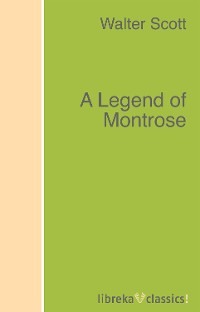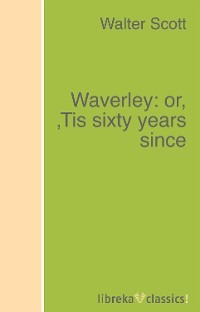
Полная версия
Kenilworth


Titel: Kenilworth
von William Shakespeare, H. G. Wells, Henry Van Dyke, Thomas Carlyle, Oscar Wilde, Joseph Conrad, Henry James, Anthony Hope, Henry Fielding, Giraldus Cambrensis, Daniel Defoe, Grammaticus Saxo, Edgar Rice Burroughs, Hugh Lofting, Agatha Christie, Sinclair Lewis, Eugène Brieux, Upton Sinclair, Booth Tarkington, Sax Rohmer, Jack London, Anna Katharine Green, Sara Jeannette Duncan, Xenophon, Alexandre Dumas père, John William Draper, Alice Christiana Thompson Meynell, Bram Stoker, Honoré de Balzac, William Congreve, Louis de Rougemont, Nikolai Vasilievich Gogol, Rolf Boldrewood, François Rabelais, Lysander Spooner, B. M. Bower, Henry Rider Haggard, William Hickling Prescott, Lafcadio Hearn, Robert Herrick, Jane Austen, Mark Twain, Mary Roberts Rinehart, Charles Babbage, Kate Douglas Smith Wiggin, Frank L. Packard, George Meredith, John Merle Coulter, Irvin S. Cobb, Edwin Mims, John Tyndall, Various, Charles Darwin, Sidney Lanier, Henry Lawson, Niccolò Machiavelli, George W. Crile, Théophile Gautier, Noah Brooks, James Thomson, Zane Grey, J. M. Synge, Virginia Woolf, Conrad Aiken, Edna St. Vincent Millay, Helen Cody Wetmore, Ayn Rand, Sir Thomas Malory, Gustave Flaubert, Edmond Rostand, Charlotte Brontë, Edith Wharton, Giles Lytton Strachey, Myrtle Reed, Ernest Bramah, Jules Verne, H. L. Mencken, H. Stanley Redgrove, Victor Lefebure, Edna Lyall, John Masefield, Charles Kingsley, Robert Burns, Edgar Lee Masters, Victor [pseud.] Appleton, Ellis Parker Butler, Mary Lamb, Charles Lamb, Johann Wolfgang von Goethe, Kenneth Grahame, Charles Dickens, John Ruskin, John Galt, James J. Davis, Owen Wister, William Blades, Sir Hall Caine, Sir Max Beerbohm, Baron Edward John Moreton Drax Plunkett Dunsany, Bret Harte, E. Phillips Oppenheim, Thomas Henry Huxley, A. B. Paterson, John N. Reynolds, Walter Dill Scott, Hans Gustav Adolf Gross, T. S. Eliot, Walt Whitman, Arthur Ransome, Jane Addams, Elizabeth, David Lindsay, Helen Bannerman, Charles A. Oliver, J. M. Barrie, Robert F. Murray, Andrew Lang, Jerome K. Jerome, Francis Thompson, Sydney Waterlow, Andrew Dickson White, Benjamin N. Cardozo, Karl Marx, Edouard Louis Emmanuel Julien Le Roy, Margaret Hill McCarter, Sir Donald Mackenzie Wallace, Howard Trueman, L. M. Montgomery, Frank T. Bullen, Baron Alfred Tennyson Tennyson, Jonathan Nield, Henry Wadsworth Longfellow, Charles Reade, Ouida, Washington Irving, Benjamin Louis Eulalie de Bonneville, Sir Walter Scott, Stewart Edward White, Arthur Hugh Clough, Baron Edward Bulwer Lytton Lytton, C.-F. Volney, T. Troward, graf Leo Tolstoy, Christopher Morley, James Madison, Alexander Hamilton, John Jay, Gilbert White, Percival Lowell, Frederick Marryat, Robert Graves, Thomas Holmes, Wilkie Collins, Maria Edgeworth, Katherine Mansfield, E. Nesbit, Olive Schreiner, Jeronimo Lobo, O. Henry, James Slough Zerbe, Donald Ogden Stewart, Johanna Spyri, Eleanor H. Porter, William Tatem Tilden, Sol Plaatje, Rafael Sabatini, William Makepeace Thackeray, George Gissing, Maksim Gorky, Baron Thomas Babington Macaulay Macaulay, H. G. Keene, Saki, R. B. Cunninghame Graham, Thomas Hughes, David Nunes Carvalho, Vicente Blasco Ibáñez, Carry Amelia Nation, John Fiske, Bernard Shaw, Elbridge Streeter Brooks, William Holmes McGuffey, Edward Everett Hale, Louis Ginzberg, Chester K. Steele, Christopher Marlowe, Plato, John Lord, Shakespeare, Martin Luther, Frances Hodgson Burnett, Howard Pyle, Charles Morris, Edward Carpenter, Maurice Leblanc, James Boswell, William Osler, William Ernest Henley, Theron Q. Dumont, Horatio Alger, Abraham Myerson, Joel Benton, Eden Phillpotts, Anonymous, Robert Louis Stevenson, Lloyd Osbourne, Cleland Boyd McAfee, Robert Williams Wood, H. C. Andersen, Edna Ferber, James Stephens
ISBN 978-3-7429-1550-4
Alle Rechte vorbehalten.
Es ist ohne vorherige schriftliche Erlaubnis nicht gestattet, dieses Werk im Ganzen oder in Teilen zu vervielfältigen oder zu veröffentlichen.
KENILWORTH.
by Sir Walter Scott, Bart.
Contents
INTRODUCTION KENILWORTH
CHAPTER I. CHAPTER II. CHAPTER III. CHAPTER IV. CHAPTER V. CHAPTER VI. CHAPTER VII. CHAPTER VIII. CHAPTER IX. CHAPTER X. CHAPTER XI. CHAPTER XII. CHAPTER XIII. CHAPTER XIV. CHAPTER XV. CHAPTER XVI. CHAPTER XVII. CHAPTER XVIII. CHAPTER XIX. CHAPTER XX. CHAPTER XXI. CHAPTER XXII. CHAPTER XXIII. CHAPTER XXIV. CHAPTER XXV. CHAPTER XXVI. CHAPTER XXVII. CHAPTER XXVIII. CHAPTER XXIX. CHAPTER XXX. CHAPTER XXXI. CHAPTER XXXII. CHAPTER XXXIII. CHAPTER XXXIV. CHAPTER XXXV. CHAPTER XXXVI. CHAPTER XXXVII. CHAPTER XXXVIII. CHAPTER XXXIX. CHAPTER XL. CHAPTER XLI. NOTES.
INTRODUCTION
A certain degree of success, real or supposed, in the delineation of Queen Mary, naturally induced the author to attempt something similar respecting "her sister and her foe," the celebrated Elizabeth. He will not, however, pretend to have approached the task with the same feelings; for the candid Robertson himself confesses having felt the prejudices with which a Scottishman is tempted to regard the subject; and what so liberal a historian avows, a poor romance-writer dares not disown. But he hopes the influence of a prejudice, almost as natural to him as his native air, will not be found to have greatly affected the sketch he has attempted of England's Elizabeth. I have endeavoured to describe her as at once a high-minded sovereign, and a female of passionate feelings, hesitating betwixt the sense of her rank and the duty she owed her subjects on the one hand, and on the other her attachment to a nobleman, who, in external qualifications at least, amply merited her favour. The interest of the story is thrown upon that period when the sudden death of the first Countess of Leicester seemed to open to the ambition of her husband the opportunity of sharing the crown of his sovereign.
It is possible that slander, which very seldom favours the memories of persons in exalted stations, may have blackened the character of Leicester with darker shades than really belonged to it. But the almost general voice of the times attached the most foul suspicions to the death of the unfortunate Countess, more especially as it took place so very opportunely for the indulgence of her lover's ambition. If we can trust Ashmole's Antiquities of Berkshire, there was but too much ground for the traditions which charge Leicester with the murder of his wife. In the following extract of the passage, the reader will find the authority I had for the story of the romance:—
"At the west end of the church are the ruins of a manor, anciently belonging (as a cell, or place of removal, as some report) to the monks of Abington. At the Dissolution, the said manor, or lordship, was conveyed to one—Owen (I believe), the possessor of Godstow then.
"In the hall, over the chimney, I find Abington arms cut in stone—namely, a patonee between four martletts; and also another escutcheon—namely, a lion rampant, and several mitres cut in stone about the house. There is also in the said house a chamber called Dudley's chamber, where the Earl of Leicester's wife was murdered, of which this is the story following:—
"Robert Dudley, Earl of Leicester, a very goodly personage, and singularly well featured, being a great favourite to Queen Elizabeth, it was thought, and commonly reported, that had he been a bachelor or widower, the Queen would have made him her husband; to this end, to free himself of all obstacles, he commands, or perhaps, with fair flattering entreaties, desires his wife to repose herself here at his servant Anthony Forster's house, who then lived in the aforesaid manor-house; and also prescribes to Sir Richard Varney (a prompter to this design), at his coming hither, that he should first attempt to poison her, and if that did not take effect, then by any other way whatsoever to dispatch her. This, it seems, was proved by the report of Dr. Walter Bayly, sometime fellow of New College, then living in Oxford, and professor of physic in that university; whom, because he would not consent to take away her life by poison, the Earl endeavoured to displace him the court. This man, it seems, reported for most certain that there was a practice in Cumnor among the conspirators, to have poisoned this poor innocent lady, a little before she was killed, which was attempted after this manner:—They seeing the good lady sad and heavy (as one that well knew, by her other handling, that her death was not far off), began to persuade her that her present disease was abundance of melancholy and other humours, etc., and therefore would needs counsel her to take some potion, which she absolutely refusing to do, as still suspecting the worst; whereupon they sent a messenger on a day (unawares to her) for Dr. Bayly, and entreated him to persuade her to take some little potion by his direction, and they would fetch the same at Oxford; meaning to have added something of their own for her comfort, as the doctor upon just cause and consideration did suspect, seeing their great importunity, and the small need the lady had of physic, and therefore he peremptorily denied their request; misdoubting (as he afterwards reported) lest, if they had poisoned her under the name of his potion, he might after have been hanged for a colour of their sin, and the doctor remained still well assured that this way taking no effect, she would not long escape their violence, which afterwards happened thus. For Sir Richard Varney abovesaid (the chief projector in this design), who, by the Earl's order, remained that day of her death alone with her, with one man only and Forster, who had that day forcibly sent away all her servants from her to Abington market, about three miles distant from this place; they (I say, whether first stifling her, or else strangling her) afterwards flung her down a pair of stairs and broke her neck, using much violence upon her; but, however, though it was vulgarly reported that she by chance fell downstairs (but still without hurting her hood that was upon her head), yet the inhabitants will tell you there that she was conveyed from her usual chamber where she lay, to another where the bed's head of the chamber stood close to a privy postern door, where they in the night came and stifled her in her bed, bruised her head very much broke her neck, and at length flung her down stairs, thereby believing the world would have thought it a mischance, and so have blinded their villainy. But behold the mercy and justice of God in revenging and discovering this lady's murder; for one of the persons that was a coadjutor in this murder was afterwards taken for a felony in the marches of Wales, and offering to publish the manner of the aforesaid murder, was privately made away in the prison by the Earl's appointment; and Sir Richard Varney the other, dying about the same time in London, cried miserably, and blasphemed God, and said to a person of note (who hath related the same to others since), not long before his death, that all the devils in hell did tear him in pieces. Forster, likewise, after this fact, being a man formerly addicted to hospitality, company, mirth, and music, was afterwards observed to forsake all this, and with much melancholy and pensiveness (some say with madness) pined and drooped away. The wife also of Bald Butter, kinsman to the Earl, gave out the whole fact a little before her death. Neither are these following passages to be forgotten, that as soon as ever she was murdered, they made great haste to bury her before the coroner had given in his inquest (which the Earl himself condemned as not done advisedly), which her father, or Sir John Robertsett (as I suppose), hearing of, came with all speed hither, caused her corpse to be taken up, the coroner to sit upon her, and further inquiry to be made concerning this business to the full; but it was generally thought that the Earl stopped his mouth, and made up the business betwixt them; and the good Earl, to make plain to the world the great love he bare to her while alive, and what a grief the loss of so virtuous a lady was to his tender heart, caused (though the thing, by these and other means, was beaten into the heads of the principal men of the University of Oxford) her body to be reburied in St, Mary's Church in Oxford, with great pomp and solemnity. It is remarkable, when Dr. Babington, the Earl's chaplain, did preach the funeral sermon, he tript once or twice in his speech, by recommending to their memories that virtuous lady so pitifully murdered, instead of saying pitifully slain. This Earl, after all his murders and poisonings, was himself poisoned by that which was prepared for others (some say by his wife at Cornbury Lodge before mentioned), though Baker in his Chronicle would have it at Killingworth; anno 1588." [Ashmole's Antiquities of Berkshire, vol.i., p.149. The tradition as to Leicester's death was thus communicated by Ben Jonson to Drummond of Hawthornden:—"The Earl of Leicester gave a bottle of liquor to his Lady, which he willed her to use in any faintness, which she, after his returne from court, not knowing it was poison, gave him, and so he died."—BEN JONSON'S INFORMATION TO DRUMMOND OF HAWTHORNDEN, MS., SIR ROBERT SIBBALD'S COPY.]
The same accusation has been adopted and circulated by the author of Leicester's Commonwealth, a satire written directly against the Earl of Leicester, which loaded him with the most horrid crimes, and, among the rest, with the murder of his first wife. It was alluded to in the Yorkshire Tragedy, a play erroneously ascribed to Shakespeare, where a baker, who determines to destroy all his family, throws his wife downstairs, with this allusion to the supposed murder of Leicester's lady,—
The reader will find I have borrowed several incidents as well as names from Ashmole, and the more early authorities; but my first acquaintance with the history was through the more pleasing medium of verse. There is a period in youth when the mere power of numbers has a more strong effect on ear and imagination than in more advanced life. At this season of immature taste, the author was greatly delighted with the poems of Mickle and Langhorne, poets who, though by no means deficient in the higher branches of their art, were eminent for their powers of verbal melody above most who have practised this department of poetry. One of those pieces of Mickle, which the author was particularly pleased with, is a ballad, or rather a species of elegy, on the subject of Cumnor Hall, which, with others by the same author, was to be found in Evans's Ancient Ballads (vol. iv., page 130), to which work Mickle made liberal contributions. The first stanza especially had a peculiar species of enchantment for the youthful ear of the author, the force of which is not even now entirely spent; some others are sufficiently prosaic.
ARBOTSFORD, 1st March 1831.
KENILWORTH
CHAPTER I.
It is the privilege of tale-tellers to open their story in an inn, the free rendezvous of all travellers, and where the humour of each displays itself without ceremony or restraint. This is specially suitable when the scene is laid during the old days of merry England, when the guests were in some sort not merely the inmates, but the messmates and temporary companions of mine Host, who was usually a personage of privileged freedom, comely presence, and good-humour. Patronized by him the characters of the company were placed in ready contrast; and they seldom failed, during the emptying of a six-hooped pot, to throw off reserve, and present themselves to each other, and to their landlord, with the freedom of old acquaintance.
The village of Cumnor, within three or four miles of Oxford, boasted, during the eighteenth of Queen Elizabeth, an excellent inn of the old stamp, conducted, or rather ruled, by Giles Gosling, a man of a goodly person, and of somewhat round belly; fifty years of age and upwards, moderate in his reckonings, prompt in his payments, having a cellar of sound liquor, a ready wit, and a pretty daughter. Since the days of old Harry Baillie of the Tabard in Southwark, no one had excelled Giles Gosling in the power of pleasing his guests of every description; and so great was his fame, that to have been in Cumnor without wetting a cup at the bonny Black Bear, would have been to avouch one's-self utterly indifferent to reputation as a traveller. A country fellow might as well return from London without looking in the face of majesty. The men of Cumnor were proud of their Host, and their Host was proud of his house, his liquor, his daughter, and himself.
It was in the courtyard of the inn which called this honest fellow landlord, that a traveller alighted in the close of the evening, gave his horse, which seemed to have made a long journey, to the hostler, and made some inquiry, which produced the following dialogue betwixt the myrmidons of the bonny Black Bear.
"What, ho! John Tapster."
"At hand, Will Hostler," replied the man of the spigot, showing himself in his costume of loose jacket, linen breeches, and green apron, half within and half without a door, which appeared to descend to an outer cellar.
"Here is a gentleman asks if you draw good ale," continued the hostler.
"Beshrew my heart else," answered the tapster, "since there are but four miles betwixt us and Oxford. Marry, if my ale did not convince the heads of the scholars, they would soon convince my pate with the pewter flagon."
"Call you that Oxford logic?" said the stranger, who had now quitted the rein of his horse, and was advancing towards the inn-door, when he was encountered by the goodly form of Giles Gosling himself.
"Is it logic you talk of, Sir Guest?" said the host; "why, then, have at you with a downright consequence—
"Amen! with all my heart, my good host," said the stranger; "let it be a quart of your best Canaries, and give me your good help to drink it."
"Nay, you are but in your accidence yet, Sir Traveller, if you call on your host for help for such a sipping matter as a quart of sack; Were it a gallon, you might lack some neighbouring aid at my hand, and yet call yourself a toper."
"Fear me not." said the guest, "I will do my devoir as becomes a man who finds himself within five miles of Oxford; for I am not come from the field of Mars to discredit myself amongst the followers of Minerva."
As he spoke thus, the landlord, with much semblance of hearty welcome, ushered his guest into a large, low chamber, where several persons were seated together in different parties—some drinking, some playing at cards, some conversing, and some, whose business called them to be early risers on the morrow, concluding their evening meal, and conferring with the chamberlain about their night's quarters.
The entrance of a stranger procured him that general and careless sort of attention which is usually paid on such occasions, from which the following results were deduced:—The guest was one of those who, with a well-made person, and features not in themselves unpleasing, are nevertheless so far from handsome that, whether from the expression of their features, or the tone of their voice, or from their gait and manner, there arises, on the whole, a disinclination to their society. The stranger's address was bold, without being frank, and seemed eagerly and hastily to claim for him a degree of attention and deference which he feared would be refused, if not instantly vindicated as his right. His attire was a riding-cloak, which, when open, displayed a handsome jerkin overlaid with lace, and belted with a buff girdle, which sustained a broadsword and a pair of pistols.
"You ride well provided, sir," said the host, looking at the weapons as he placed on the table the mulled sack which the traveller had ordered.
"Yes, mine host; I have found the use on't in dangerous times, and I do not, like your modern grandees, turn off my followers the instant they are useless."
"Ay, sir?" said Giles Gosling; "then you are from the Low Countries, the land of pike and caliver?"
"I have been high and low, my friend, broad and wide, far and near. But here is to thee in a cup of thy sack; fill thyself another to pledge me, and, if it is less than superlative, e'en drink as you have brewed."
"Less than superlative?" said Giles Gosling, drinking off the cup, and smacking his lips with an air of ineffable relish,—"I know nothing of superlative, nor is there such a wine at the Three Cranes, in the Vintry, to my knowledge; but if you find better sack than that in the Sheres, or in the Canaries either, I would I may never touch either pot or penny more. Why, hold it up betwixt you and the light, you shall see the little motes dance in the golden liquor like dust in the sunbeam. But I would rather draw wine for ten clowns than one traveller.—I trust your honour likes the wine?"
"It is neat and comfortable, mine host; but to know good liquor, you should drink where the vine grows. Trust me, your Spaniard is too wise a man to send you the very soul of the grape. Why, this now, which you account so choice, were counted but as a cup of bastard at the Groyne, or at Port St. Mary's. You should travel, mine host, if you would be deep in the mysteries of the butt and pottle-pot."
"In troth, Signior Guest," said Giles Gosling, "if I were to travel only that I might be discontented with that which I can get at home, methinks I should go but on a fool's errand. Besides, I warrant you, there is many a fool can turn his nose up at good drink without ever having been out of the smoke of Old England; and so ever gramercy mine own fireside."
"This is but a mean mind of yours, mine host," said the stranger; "I warrant me, all your town's folk do not think so basely. You have gallants among you, I dare undertake, that have made the Virginia voyage, or taken a turn in the Low Countries at least. Come, cudgel your memory. Have you no friends in foreign parts that you would gladly have tidings of?"
"Troth, sir, not I," answered the host, "since ranting Robin of Drysandford was shot at the siege of the Brill. The devil take the caliver that fired the ball, for a blither lad never filled a cup at midnight! But he is dead and gone, and I know not a soldier, or a traveller, who is a soldier's mate, that I would give a peeled codling for."






